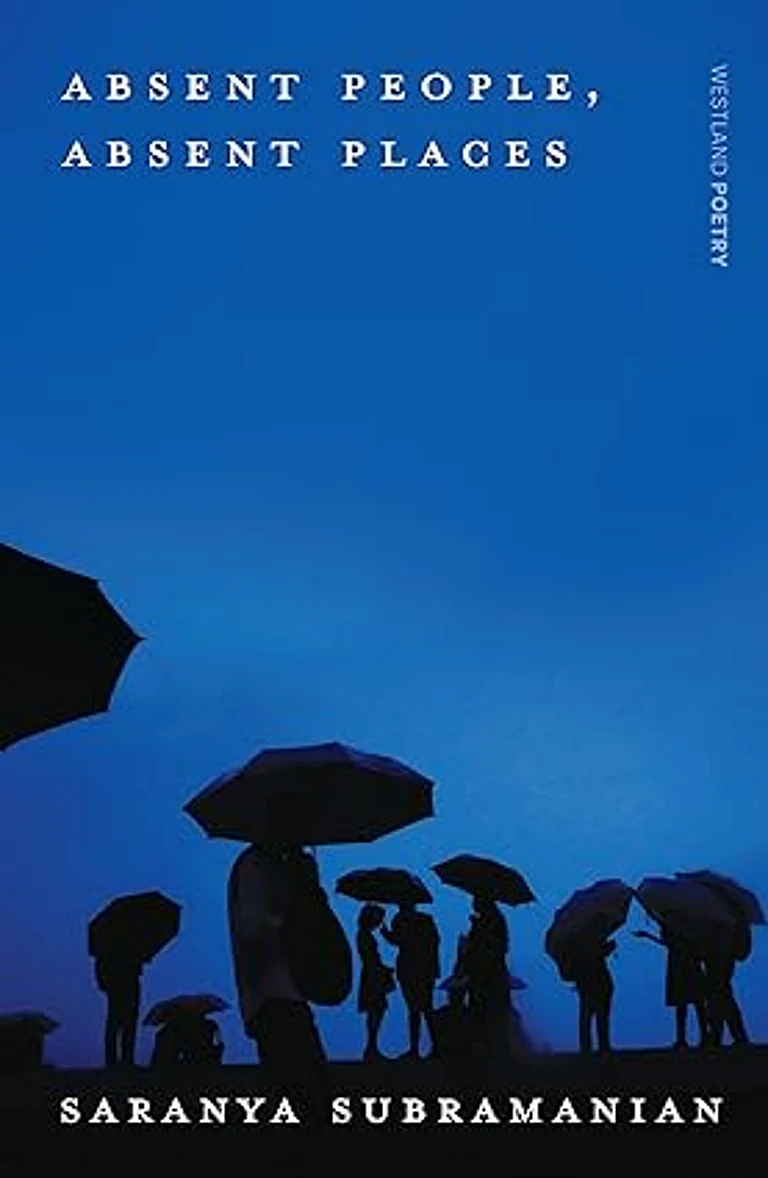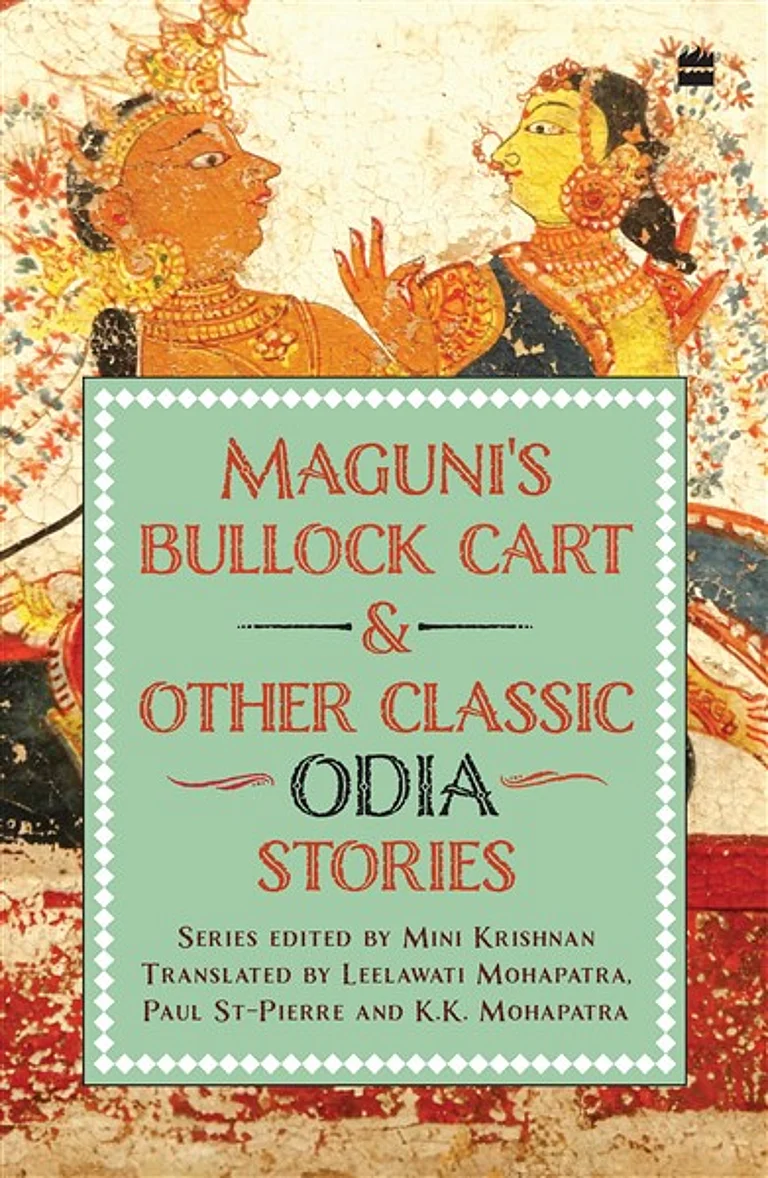
Goswami’s A Different Story celebrates 'slowness' through sensory, patient poetry.
He invites readers to savour emotions like they would a leisurely meal.
In nine ‘rasa’-based sections, the 150 poems capture a wide emotional spectrum.
Amlanjyoti Goswami’s latest collection of poems, A Different Story, is like a sumptuous multi-cuisine thaali in which each dish, cooked on a leisurely flame, yields a distinct rasa. There is no hurry to excite the taste buds with a quick-fire tadka. If in his earlier collection, Vital Signs, quietude dominated as the prevailing trope, it is slowness that becomes his swansong now:
“I now love slowness
the time it takes
for dew drops
to become sun...”
(From 'In Praise of Slowness')
The slowness travels full distance, “inside an ocean – deep, vast and beyond” to turn into clouds, “moist as feeling” (‘Sur Bahar/ Sea Note’) to be felt with half-shut eyes.
The meltdown of a soft and foamy golgappa can be “priceless” provided:
“You let your tongue run through it and let it disappear
without opening your eyes
Your heart...”
(From ‘Daulat ki Chaat’)
One has to be a ‘sahrdaya’, a patient fellow listener in a raga-rendition, to take it all in – “Word Tune Atmosphere” (‘Fellow Listener’). “The house of poetry,” the poet writes, “is always open but only for those who are willing to listen” (“Where can you find me a line of poetry”).
Reading Goswami has to be unconditionally reciprocal: “Sometimes I see a misty sky, just after rain/ Sometimes the sky sees me.” ('A Variation on Tzunag Tzu’).
Instead of banking on some momentary magical metaphor, or hitting upon some aphoristic line out of thin air, Goswami chooses thick narrative – “one bobbly mass of words deepening into a sentence” (‘Gandhi Bhavan Chandigarh’) – as his blueprint for a poetic latitude.
The narrative, before it achieves momentum – “the sweet pain of victory” – has to wrestle through mundane material details, distracting emotional turmoil, and raw bodily bouts. Kushti is both his craft and content: “A scene cast in white marble, from some lost roman arena/ Or mud bathed in our backyard, where the grip tightens...” (‘Kushti’).
The unfoundedness of fear or the irrationality of anger defies both metaphoric overreach and axiomatic precision. The poet finds his way through the narrative scaffolding to approximate the unsayable. He pushes the door, with all his might, to keep a pack of dogs snarling outside at bay, only to discover that there was nothing behind the door: “It is all empty”. Emptiness is narrativised in a poetic loop in another poem that runs full length to culminate thus: “The empty bowl is the most satisfying meal I’ve ever had” (‘Empty Bowl’).
With a child-like sense of cavalier ownership, Goswami piggybacks on the who is who of the world of art. Pissaro’s trees, Van Gogh’s sunflowers, Dali’s melting clocks, and Nainsukh’s miniatures add to his visual vocabulary. The poems gather an abiding acoustic echo as leading music maestros – from Ustad Faiyaz Wasifuddin Dagar to Ustad Rashid Khan, and from Kumar Gandharava to Annapurna Devi – come to accompany him to finetune his multiple moods.
A galaxy of poets – local and global – also keeps peeping in and out. Vinod Kumar Shukla’s open window, Srikant Verma’s desolate Magadha, Kolatkar’s lesser god Yashwant Rao, Ghalib’s indifferent Dilli, Kalidas’ dark clouds, Jibanananda’s Banalata in translation, Pia Tafdrup’s expensive book, Michael Madhusudan Dutt’s letters – all free-float in Goswami’s cosmopolis in rare conversational proximity. For a spiritual denouement, the poet seeks to understand the meaning of Tathagata – the one who comes and goes the same way. Reading Goswami is just like walking through a hall of fame, where each portrait demands compelling attention, and a possible interpellation.
But Goswami is at his intimate best when, instead of hitchhiking with great masters, he gathers “love stories, yours and mine/ the ones with no ending” (‘A Different Story’). There are poems that kindle feelings of personal love and loss. Mother, gone from the world, comes back in the form of the wind and sometimes the rain that “falls on a lonely Bombay evening” (‘Ma Did not See Bombay’).
A grandmother-granddaughter duo constitutes a convivial bond and a happy binary: “Grandmom continues to find meaning in little nuggets/Her granddaughter wants to change the world (‘Graduation Ceremony’). The image of a couple on the stairs of Mandi House with one bringing “some pickle to go with roti”, and “the other cookies to swing with her chai” against the backdrop of “a lonely evening sky” (‘Evening by Mandi House’) restores this-worldly warmth in relations. Father is “happy without birthdays/.../ doesn’t want to be ruffled by glitter and confetti” (‘My Father’s Birthday’).
At times, Goswami is on his own solo drive: “Once rituals have walked the distance” (‘Maybe’), he “turns the ignition on – life” (‘We Will Reach Evening by Guwahati’) with no room for questions, moral indictments. In such poems there is no archival fever: the “car moves on/... /While the world passes as before” (‘Tell me a Different Story’).
The division of the collection into nine sections named after ‘rasas’ is double-edged – at one level, it lends a structure and sequence to the meaty book of 150 poems, at another, it reduces each poem to a single dominant mood, foreclosing its alternative readings. But the collection marks Goswami’s readiness to experience a full range of emotions – so necessary for a poet to announce his arrival on the scene.

























